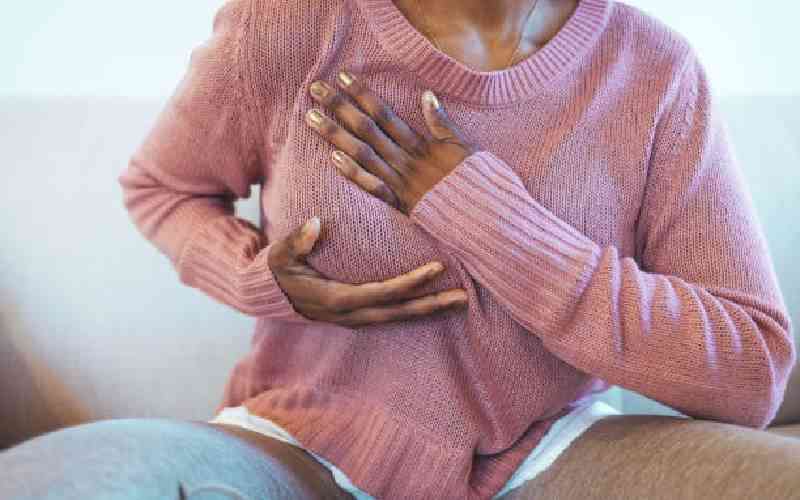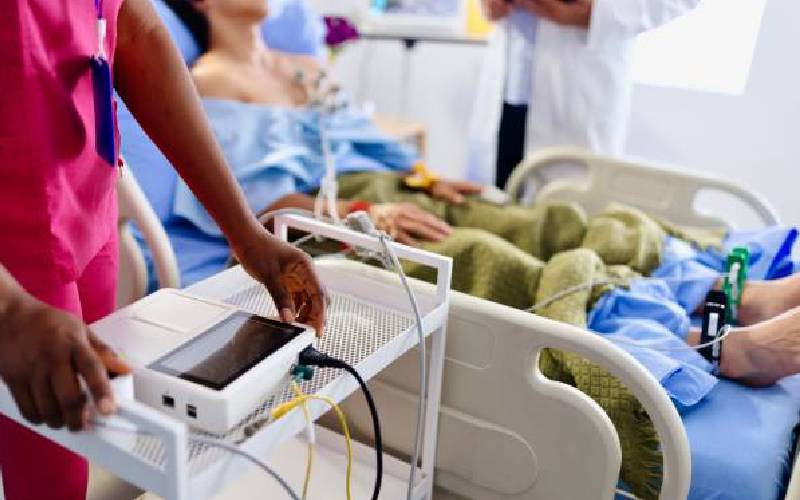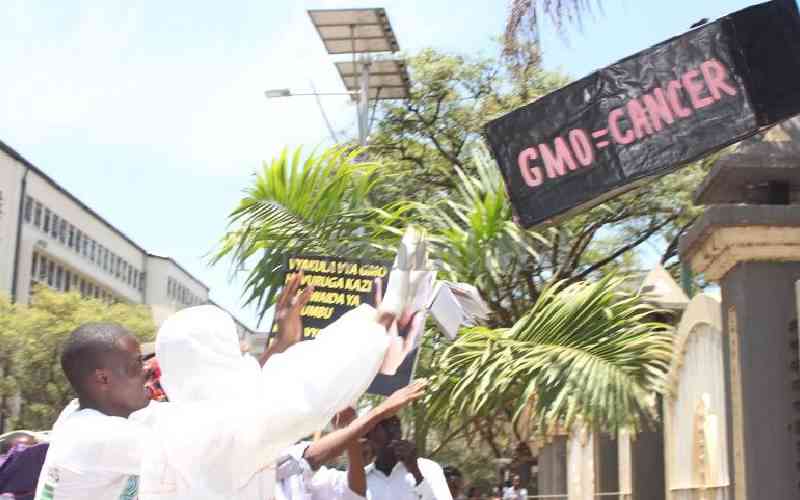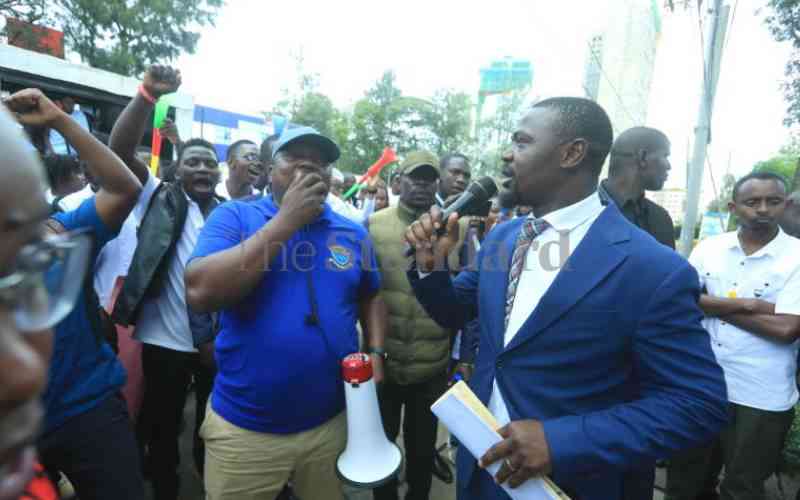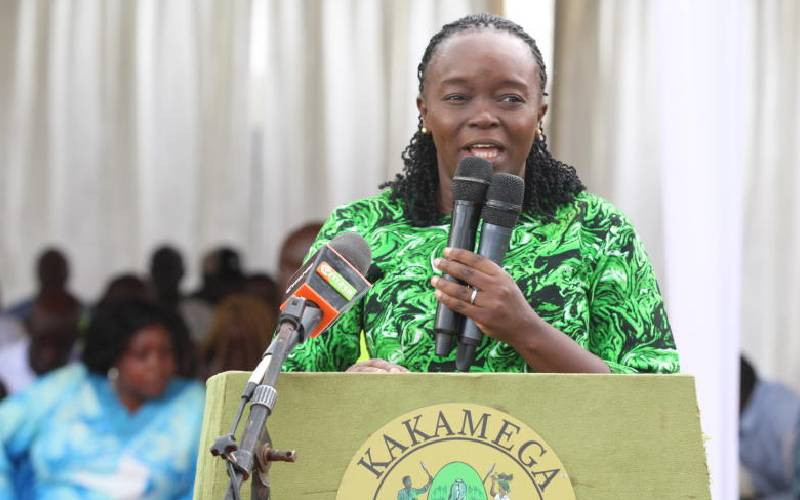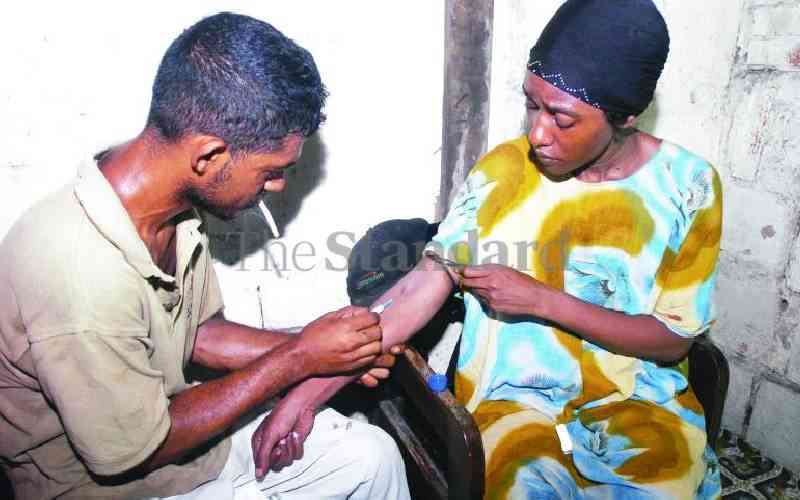
Persons with disabilities have called on the Ministry of Health to address discrimination in access to maternal and sexual reproductive health services.
The head of programmes at United Disabled Persons of Kenya, Esther Mkamori said it is worrying that most women in search of delivery are subjected to Caesarian Section (C-Section) without being examined because of their physical challenge.
She said a bigger percentage of maternity wings do not have adjustable delivery beds to fit people with disabilities. Equipment at Antenatal Clinics (ANC) in most hospitals also like weighing scales does not favour people with disabilities.
“Sadly, pregnant women with disabilities prefer home delivery with the help of traditional birth attendants because equipment in hospitals does not favour them, and some fear how they are treated by doctors. In hospitals, some deliver on the floor,” said Mkamori.
Communication is also a barrier to access to health services.
“We are reporting a lot of cases of forced abortions, sterilisation and prescription of contraceptives among people with disabilities, more so those with intellectual disabilities,” added Mkamori.
“We need proper data on the number of people with disabilities, so that they can be planned for, for example, have the government know the number of maternity beds to set up, and also understand their kind of disabilities for help,” observed Boniface Agola, Health Education Infrastructure Disability Inclusion Consortium (HEIDI) representative.
- Unspoken struggle of bedwetting as an adult
- Fertility myths set couples up for failure, disappointment
- Despite the pain and rejection, endometriosis has made me stronger
- Why women aren't lining up for life-saving screening, vaccine
Keep Reading
HEIDI chairperson Jane Ndenga said there is a need to raise public awareness of the sexual and reproductive health rights of women and girls with disabilities and the consequences of discrimination including maternal deaths, infant mortality, aggravated disability, the disproportionate rate of HIV/AIDS infection, mental illness and sexual and gender-based violence.
Speaking during the commemoration of World Population Day, the leaders said the government should pay attention to the discrimination of women with disabilities in the provision of sexual and reproductive services and to take immediate policy and programmatic actions to end the discrimination.
Women Challenged to Challenge (WCC) executive director, Jane Kihungi, added that political protests and climate shocks also affect women and girls with disabilities in search of health services.
For example during floods, “Regarding sexual and reproductive health, disruption in movement meant that it was impossible to seek reproductive health services be it maternal or family planning services. Humanitarian situations that cut off persons with disabilities from work usually lead to increased sexual and gender-based violence, and the flooding period was not an exception,” she said.
Similarly, the violent turn of the protest has kept women and girls with disabilities living in protest-prone areas to avoid movement during protest days for fear of being caught up in the violence.
“This means cutting off visits to health facilities to seek sexual and reproductive health services,” added Kihungi.
Citing two recent studies conducted on the state of the sexual and reproductive health of women and girls with disabilities, the leaders highlight how far women and girls with disabilities have been left behind in the universal sexual and reproductive health services and rights.
The first study, on sexual reproductive health rights (SRHR) of women with disabilities by WCC was done in Siaya, Nairobi and Homa Bay.
The study conducted in 2021 found that while Kenya has an elaborate policy and legal framework for promoting sexual and reproductive health rights, women with disabilities have a myriad of SRHR issues and challenges.
“Among challenges include relationships, access to and availability of disability-friendly SRH services, stigma and discrimination,” said
“Respondents perceive that GBV and abuse against Women and girls with disabilities as quite common in the community and perpetrators of sexual and gender-based violence are generally known to the survivors,” said Dr Josephta Mukobe WCC board secretary.
She added, “The study established there is low awareness and knowledge about policies on the provision of SRHR information and services to women and girls with disabilities.
The second study on insights into the sexual and reproductive health rights of women with disabilities by Kenyatta University was published in 2021. The study narrowed down its scope of investigation to the utilization of family planning services by women with disabilities in Kajiado.
The study conducted on 200 women with disabilities found that 68 per cent of the respondents had not utilised family planning services, while 32 per cent had utilised the services.
At least 28.3 per cent of the respondents did not use family planning because of fear of complications on usage, followed by 17.7 per cent who reported that the desire to have children and religious prohibition were the reasons for non-use.
It was found that 57 per cent of women had low awareness regarding family planning methods, while 43 per cent had high awareness.
More than half, 54 per cent of women who were not employed did not utilise any family planning services.
Additionally, 58.1 per cent of the respondents who suffered from physical impairment did not use family planning services.
Alice Munala, Programme officer at WCC said healthcare providers have been trained across the country on sign language to ease access to care by people with disabilities.
“We have trained health providers including police, teachers and chiefs on communication,” said Munala.
“A person with disabilities is like any other. Nothing prevents them from enjoying their sexual rights. We therefore need to have them included access to healthcare.”
 The Standard Group Plc is a multi-media organization with investments in media platforms spanning newspaper print
operations, television, radio broadcasting, digital and online services. The Standard Group is recognized as a
leading multi-media house in Kenya with a key influence in matters of national and international interest.
The Standard Group Plc is a multi-media organization with investments in media platforms spanning newspaper print
operations, television, radio broadcasting, digital and online services. The Standard Group is recognized as a
leading multi-media house in Kenya with a key influence in matters of national and international interest.


